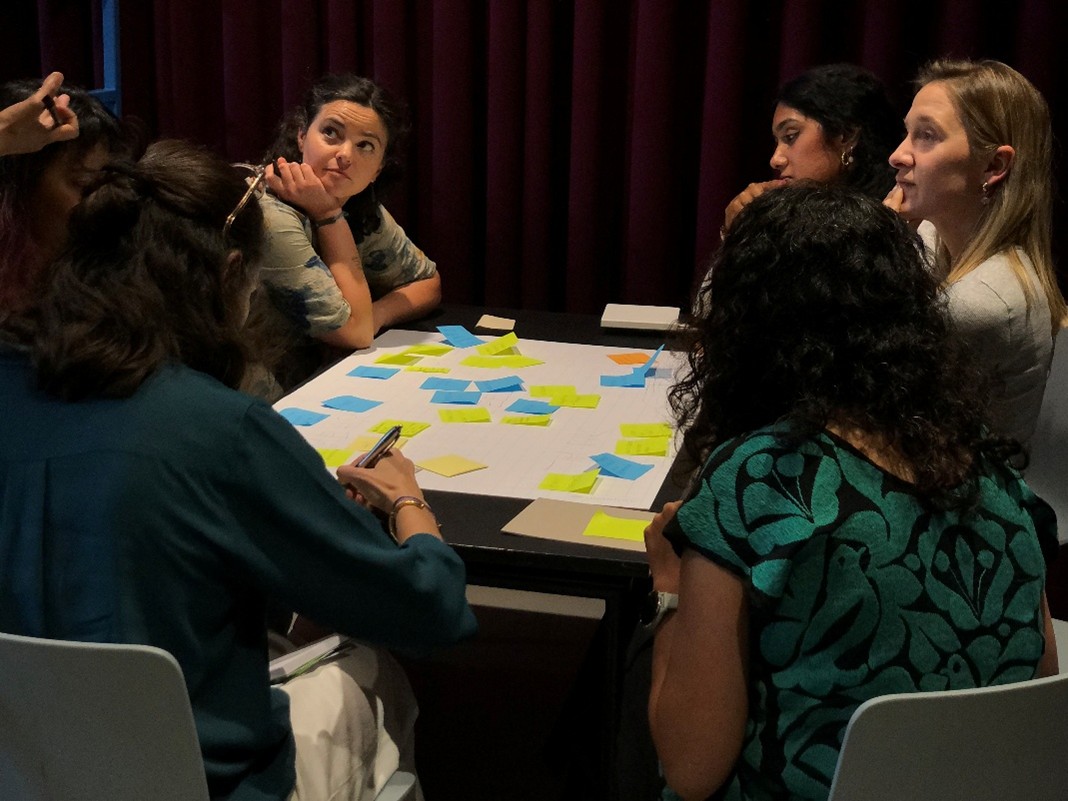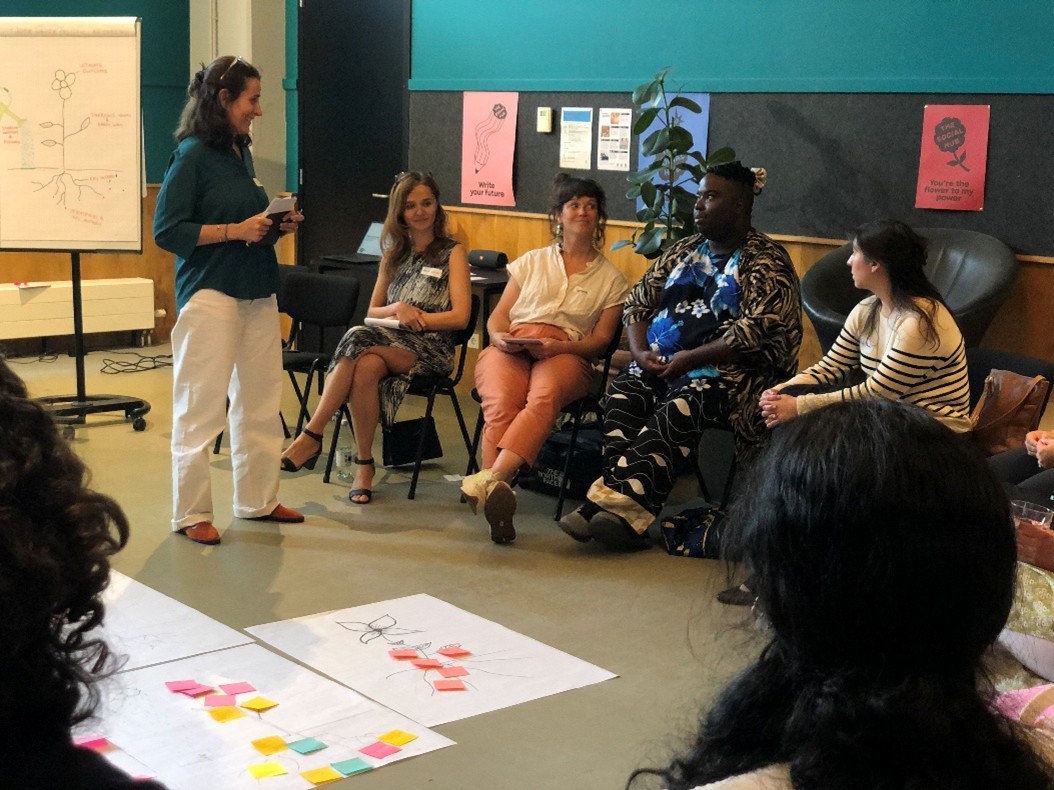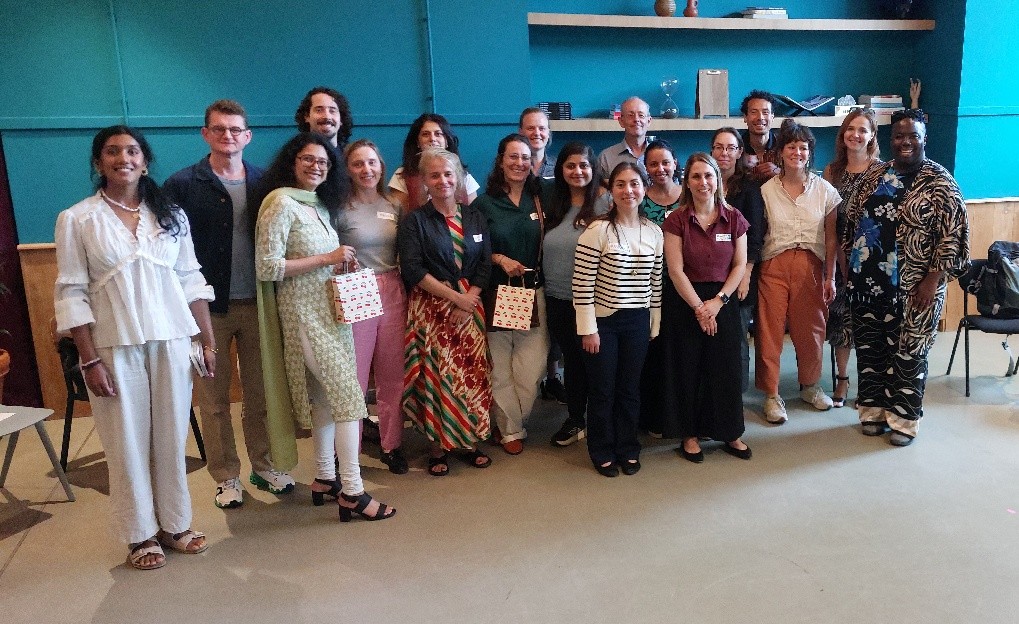
The session kicked off with a conversation with Dumiso Gatsha (Success Capital Botswana) and Gunjan Veda (Movement for Community Led Development) who offered a powerful reflection on the current moment and the international development landscape, highlighting its colonial roots, systemic inequities, and disconnection from grassroots realities. Both speakers emphasised the urgent need to move away from a transactional model toward one grounded in solidarity, inclusiveness, and trust.
We are often stuck in competition with each other, while we should look at how we could make solidarity the starting point of our work and navigate the shifts together. Instead of competing for a few seats around the table, we should critically look at the table and how we could change or expand it. In order to do this, it is important to identify shared values that enable us to work together, such as inclusion, solidarity and equity.
Community and connection
Gatsha and Veda emphasized the importance of working at grassroots level and engaging with communities in order to change narratives and build movements, in response to the anti-rights movement and attacks on civil society. The current focus of our sector on service delivery, rigid frameworks and delivering results that can be measured stands in the way of building authentic relationships and overlooks lived experiences. The speakers shared examples of how change happens through day-to-day engagement and human connection: on the streets, at bus stops, and in community spaces. Engaging with communities requires us to listen deeply, recognise that we are all connected, and invest in narrative change. Art can play a crucial role in this and has historically served as a vehicle for resistance and solidarity.
The theme of connection resonated with the people in the room. During visioning exercises where participants had the opportunity to share their thoughts with one another, connection was a central topic. Improving connections between organisations, by sharing information, building bridges, and reflecting together on how we want to respond to this transformative time.
Looking forward
This session was an opportunity for reflection and looking forward. We explored how we can make space for the negative emotions we are feeling, such as fear, anger and grief, while also being strategic instead of reactive and work towards international solidarity based on shared values. Important questions were raised, such as: who should be defining what solidarity looks like? What are our different roles? And: how do we not repeat the same patterns as before?
At the closing of the session, Dumiso Gatsha reminded us that much of the work we are talking about is already being implemented in the Majority World. It was recognised that we have to start practicing solidarity and continue building connections, in and outside of the room.
To continue these important conversations, please join us in our upcoming session on July 10: New INGO roles in shaping the future of Global Development

